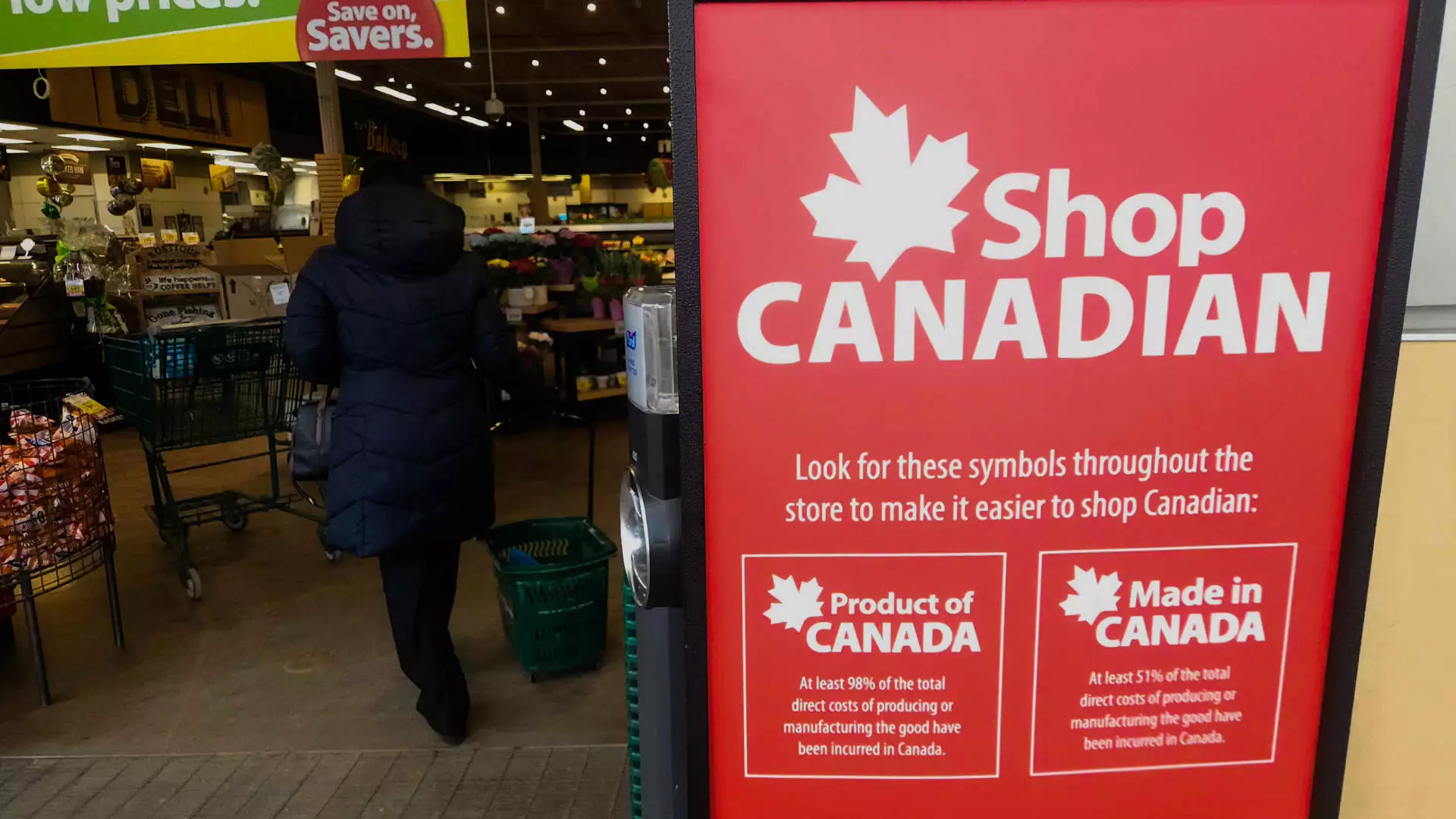As the fallout from President Trump’s sweeping tariffs continues to ripple through North America, the human element of this economic policy is becoming increasingly evident. For many small businesses on both sides of the U.S.-Canada border, tariffs are more than just numbers—they represent a deep-seated betrayal of a long-standing partnership. With the U.S. and Canada historically relying on each other for trade—amounting to an impressive $762.1 billion in 2024—this new era of economic friction raises alarming questions about trust, sustainability, and the future of cross-border commerce.
In March, the Trump administration imposed a 10% tariff on Canadian energy exports, coupled with a 25% levy on various other imports from Canada and Mexico. These actions were marketed as a necessary measure to rebalance trade; however, the sentiment on the ground tells a different story. Entrepreneurs have reported feeling abandoned, watching as their relationships with American partners falter under the weight of these tariffs. The emotional toll of economic policy should not be underestimated; it can have real consequences for businesses that have thrived on trust and mutual benefit.
Creative Resistance: The Canadian Business Response
One of the most striking reactions has come through a creative branding shift observed among some Canadian businesses. Take Balzac’s Coffee Roasters, for example, which has cleverly rebranded its Americano as the “Canadiano.” Such a gesture goes beyond mere marketing—it’s a heartfelt declaration of national pride and loyalty. Similarly, the Independent Grocers chain has taken to prominently displaying items marked as “prepared in Canada,” even introducing symbols to indicate products affected by tariffs. These actions reflect a growing sentiment among Canadians to support homegrown products, illustrating that patriotism can indeed manifest in the marketplace.
However, this shift also hints at a more troubling reality: a deepening divide. As the CFIB (Canadian Federation of Independent Business) indicates, about half of its members are directly engaged in cross-border trade, and over a quarter have noted a strengthening demand for Canadian-made goods. Yet, this pull toward domestic products isn’t merely about preference; it stems from a palpable fear of reliance on what has become an erratic and unpredictable trading partner.
The Trust Factor: Erosion and Emotional Distress
Corinne Pohlmann, the executive vice president of advocacy at CFIB, poignantly remarked that these tariffs have sparked feelings of betrayal among Canadians. For them, the once-reliable U.S. market now feels fraught with uncertainty. In the wake of these tariffs, many Canadian businesses are faced with the daunting task of renegotiating contracts, raising prices, and ultimately questioning the stability of their relationships with American clients. The emotional strain is significant, as it transcends simple economic impacts. The long-standing trust built between U.S. and Canadian businesses has been severely shaken, and rebuilding that trust, if it’s even possible, will take time and effort.
Highlighting the broader implications, the Liquor Control Board of Ontario has gone so far as to halt purchases of U.S. products, siphoning away once-popular brands. This move not only serves as a political statement, but it also accentuates the risk of long-term ramifications for small businesses reliant on American imports. Trade wars bring more than immediate financial consequences; they can alter the fabric of business relationships for generations.
Soft Power and Geopolitical Consequences
The importance of soft power as a diplomatic tool cannot be overstated. Former Secretary of State Antony Blinken recently cautioned that the ongoing strain on U.S.-Canadian relations could lead to a detrimental decline in the influence America holds on the global stage. As the U.S. turns inward and adopts fortress-like economic policies, it risks letting countries like China step in to fill the gap in global leadership. The idea that the U.S. could cede its standing as a reliable partner sends chills down the spines of many who have built careers in international trade.
These tariffs represent the kind of “hard power” strategy that ostensibly aims to induce compliance through economic coercion. However, the consequences extend much beyond dollar figures; they reach into the heart of international trust. The toll is not just financial; it’s also deeply human, impacting lives and livelihoods in both nations, and creating an environment where fear trumps collaboration.
As we navigate this tumultuous economic landscape, it’s essential to reflect on who benefits and who suffers. The tariffs may seek to protect American industry, yet the collateral damage to businesses and relationships that define North American trade is a cost too high. And if the goal was to foster domestic production, we must ask ourselves: at what expense?

